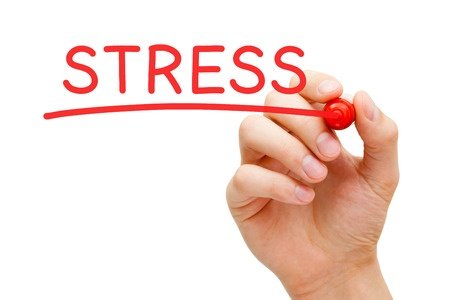
Stress Management
You may think that stress is like caffeine–it pumps you up, keeps you working at your optimum level, and helps you be more productive. Actually, stress releases chemicals can detract from your performance.
Humans are meant to have periods of high and low stress. If you are subject to high levels for prolonged periods of time, the chemicals can actually cause physical damage such as obesity, heart disease, and breast cancer. Some experts say that 90% of doctor’s visits are for stress related symptoms and illnesses.
Any health problem can create financial difficulties because of the extra burden of paying for doctors, drugs, alternative medicine, and taking time off work. The impact of the money drain on your wallet can cause even more stress, thereby exasperating the problem.
It is critical to be financially prepared when health related issues arise. By setting aside an emergency fund in advance, you are more likely to spend the time, energy and money needed to optimally heal when needed. In fact, good money management and health management go hand in hand. Wise healthy people spend their resources on maintaining their health with good nutrition, exercise and stress relief before an emergency strikes. Therefore they often avoid some of the more financially debilitating diseases that might crop up due to poor health maintenance or improper stress reduction.
While it’s impossible to eliminate stress completely, it’s possible–in fact, necessary–to reduce your stress level.
Answer yes or no to these questions to determine how stressed you are:
- Do you feel tightness in your neck, shoulders, back, or chest on a daily basis?
- Are you completely worn out by the end of the day?
- Do you have headaches more than once a month?
- Do you have trouble keeping your mind clear and your thoughts straight?
- Do you have high blood pressure?
- Do you have trouble falling or staying asleep?
- Are you often irritable or angry for no clear reason?
- Do you suffer from indigestion or stomach pains?
- Do you have a lack of appetite or find yourself snacking constantly, even if you’re not hungry?
- Do you smoke?
- Have you sacrificed your exercise routine to check off more “to do” items?
- Have you canceled your plans to do something fun more than twice in the last month because of work or family obligations?
- Have you noticed a drop in your patience level over the last few months?
- Do you skip meals or eat poorly because you’re too busy working?
For each “yes,” give yourself one point. Add up your total score and read what the numbers mean below:
9 points or more: You’re under a significant amount of stress, so much so that your health may be at risk. Consult your physician for help in reducing the amount of stress in your life. Identify your major stressors and develop a way to deal more effectively with each.
5 – 8 points: You’re under a moderate amount of stress. Reduce your stress level by noticing when you feel stressed and doing what you can to change the situation. Also notice when you handle work and home pressures effectively and model your behavior during periods of stress on those times when you performed well under pressure.
4 points or fewer: You’ve found a way to control the stress in your life, instead of letting it control you. Good work, but you should continue to identify and aim to eliminate any remaining stressors.
